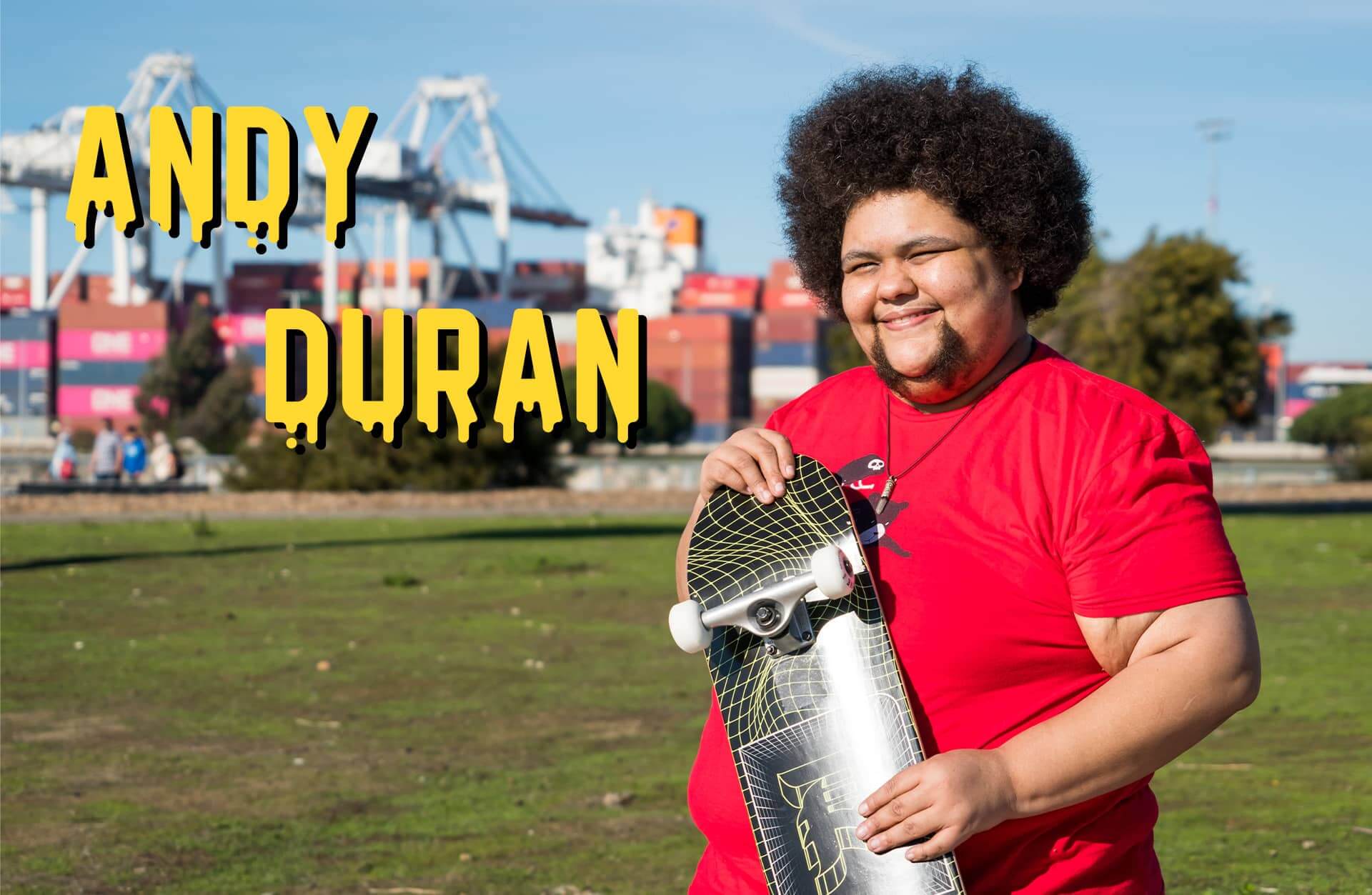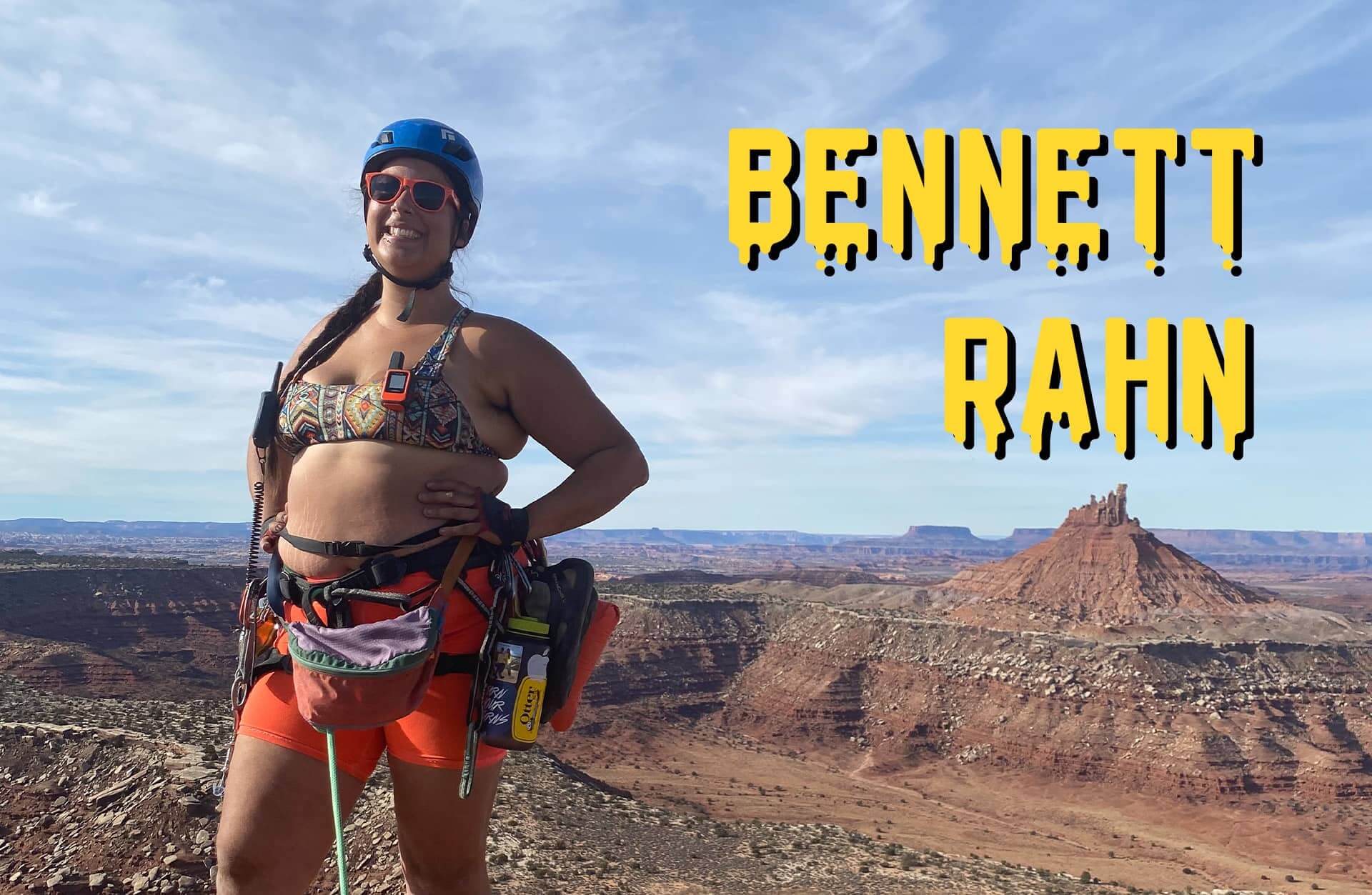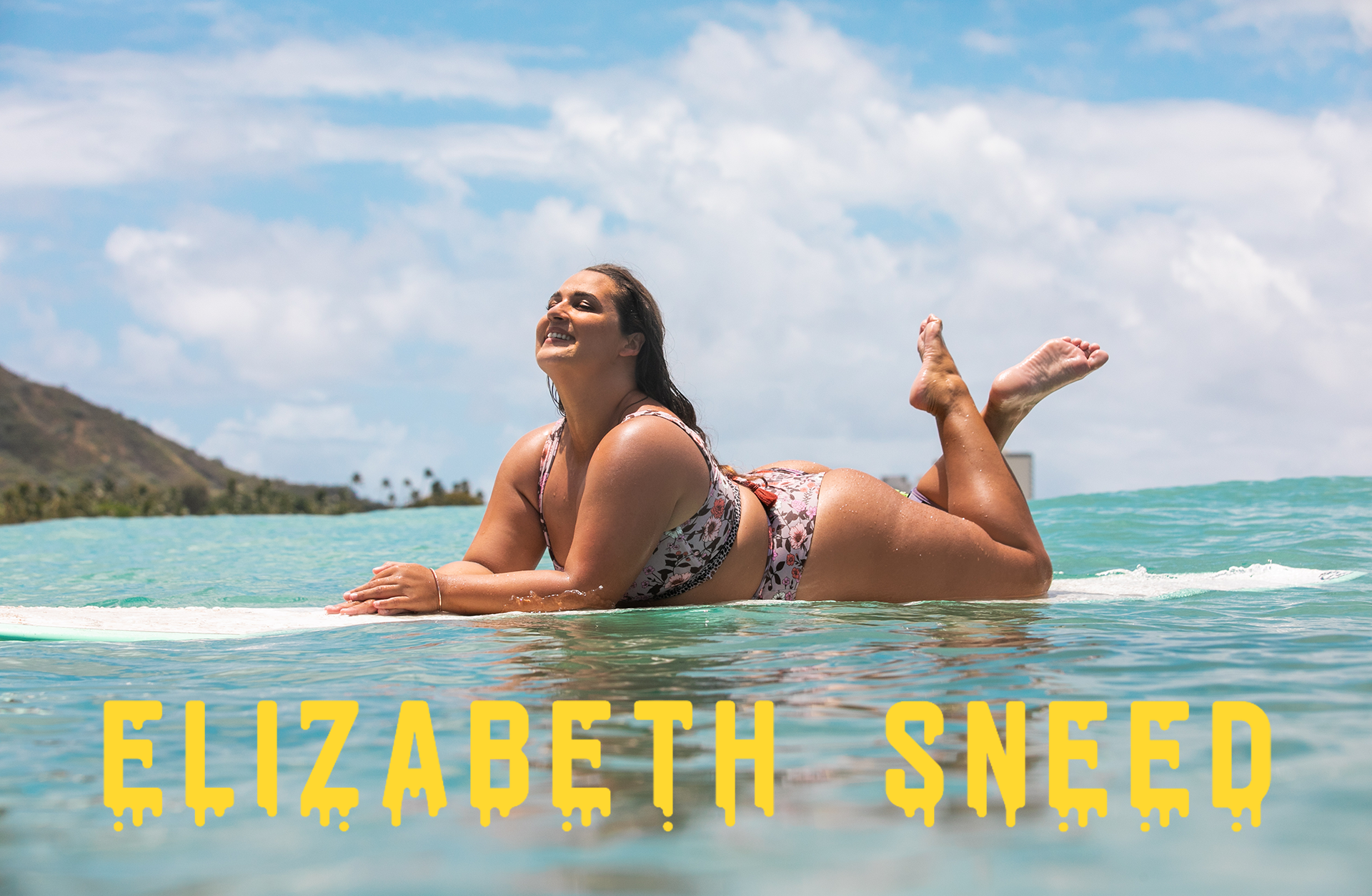SKATE // 01 JUNE 2023
CHUB ROLLZ
What does it mean to be a “real skater”? Using current skate media as a guide, it seems the first requirement is tricks, and lots of them. Aesthetically, the skater body type seen in magazines and online falls right in that stereotypical So-Cal straight-size group. Mall grabs are also an absolute no-go. To the new skater, it can feel like there are an overwhelming number of both implicit and explicit rules in order to be considered a “real skater”. However, before the boom of the internet and social media, skateboarding didn’t come with all these conditions. For kids it meant one thing, freedom.
Andy Duran, founder of the plus-size skate group Chub Rollz, reflected on his days pushing around his childhood neighborhood. “I started skateboarding probably around seven. My dad was a janitor at the high school, and one day he found [a skateboard] left on campus over the summer and brought it home. I was really excited.”
Growing up Duran’s “skate crew” was a hodge-podge collection of pedestrian conveyances. Rolling around together on bikes, scooters, rollerblades, and skateboards, the goal was never to live up to an idealized standard, it was to get from point A to point B. “We all had [the means] to get to the basketball court or wherever we were going. There wasn’t a skate culture at that time within my core group of people that skated with me. It was more adolescent. It felt more like a mode of transportation,” explained Duran. “You were a part of the group, no matter which [mode of transport] you were into. We could all mess around and try different tricks and feel kind of cool. That’s something that I feel again now, as I’ve returned to skating with my current friends, which is really great.”
Duran continued to skate up until high school. But, as life got busier and driving became an option, Duran would reach for his car keys instead of his skateboard. “It felt like something that I would come back to one day,” he said. “A skill that I would still have, but not something I was trying to do something with immediately, much like the guitar I had in high school and other things that are still in my closet.”
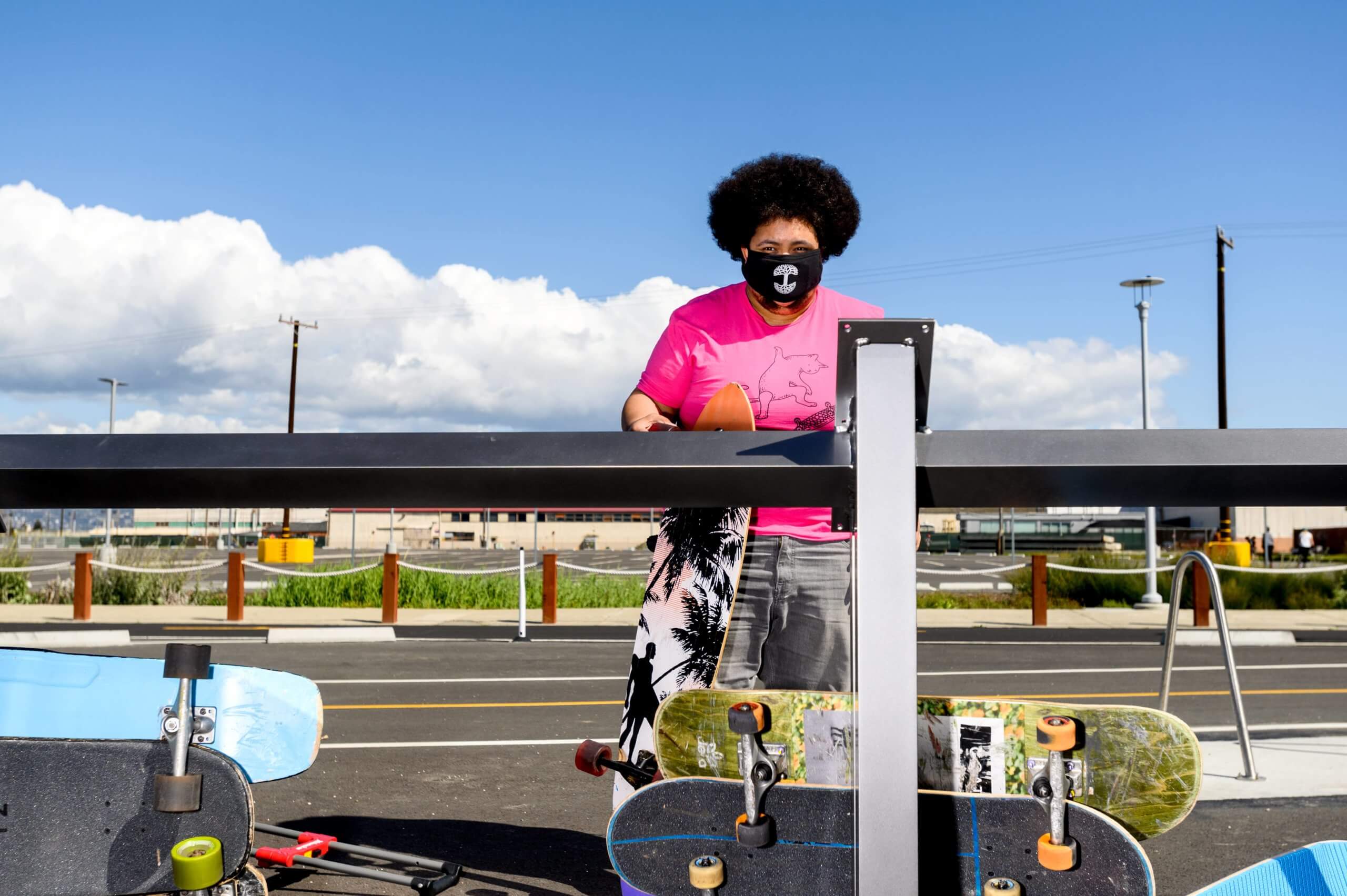
That break from skateboarding came to an end 15 years later in 2020. Faced with an abundance of free-time brought on by the lockdown, Duran decided it was about time to bring his board back out into the light. “One of the biggest factors was wanting to get some physical activity [without being] near people. It seemed like it was a really nice fit,” he explained. “There was also this wake up call about mortality and feeling like, okay, I’ve got all this free time, but also I don’t have all the time in the world. Time is going to run out, and you never know what’s going to happen and when. This might be the healthiest I am ever. This is certainly the youngest I’m going to be again, so why not now?”
“Jumping on [a skateboard] in your late 30s feels a little different,” he laughed. “The muscle memory is gone, and so I had to kind of start from scratch. I really wish that I hadn’t taken that long of a break. That I had gotten back on it earlier and reminded myself that I could [skateboard] at any point.”
This return to childhood joys was seen across the skate industry for both skateboarding and roller skating during the pandemic. The concrete called to the kids of the ‘90s, encouraging them to return to the pavement.
Of course, after a 15 year break, Duran figured that the board in the back of his closet probably wouldn’t cut it anymore. “The wheels were almost 20 years old. They roll,” laughed Duran. “But I had this feeling that it probably wasn’t going to still be the best board for me. So, I started looking online. I thought, it’s 2020, there’s got to be some great buyer’s guides for heavier riders, right?”
After a few hours of digging, Duran was forced to face the simple yet disappointing answer of “no”. “Not a single thing like that existed,” he explained. “So, then I was like, there’s got to be some fat riders on Instagram, YouTube or TikTok. Nope, nowhere. It was virtually impossible to find a fat skater online in 2020, and it pissed me off. Because if I were new to skateboarding, if I wasn’t 250 lbs when I was skating in high school, I would really believe that you can’t skate if you’re over 200 lbs.”
This false impression is further perpetuated by an absence of plus-size skate gear in general. Beyond boards, a new skater is going to look to purchase safety gear as well. A helmet, knee pads, elbow pads, wrist guards. These protective pieces not only keep important joints safe, they also provide a sense of security for the apprehensive beginner.
“There’s one major brand that has plus-size knee pads, elbow pads, things like that,” explained Duran. “They’re called the Moxie Thick Set, and they only come in a couple of different styles, a little bit on the feminine side, but that’s cool. I wouldn’t be opposed to wearing some bright pink or bright purple pads. Another parent company that owns [Moxie] also does them in all black. I had found them first and had to get my pads custom made in my dimensions. If I had gotten the Moxie Thick set, I probably would have saved like $50 or $70, but it wouldn’t have been the all black version that I enjoy. [Ordering them custom] was the only way to get it. Those were the only two places, period. They’re out. You can’t get them. And if you’re bigger than me, then sorry.”
For plus-size athletes, this online scavenger hunt is not an unfamiliar experience. A majority of brands, outdoor focused or otherwise, may carry extended sizes but not have them available in store. While purchasing gear online is functional, it is a frustrating process. Pads for example, are going to be worn while skateboarding or rollerblading, activities with a lot of movement. That gear needs to fit well, both for comfort and so the pads are able to correctly protect the rider. And the truth is no amount of measuring can compare to trying gear on in store. Duran exponded, “It’s a bummer in general because if you go into the skate shop, you’re just not going to feel represented.”
Duran knew that being plus-size didn’t impede his ability to skate. As he scoured various websites looking for a new board, it occurred to Duran that it may be beneficial to other plus-size folks interested in skating for him to share his journey. “I was like, well I’ll just buy [a skateboard] that I want to buy, and then maybe I’ll review it. Maybe I’ll talk about if it buckles under my weight. Maybe I’ll post some videos that are like, hey, fat kid skating. That’s how it started, just documenting my skating process.”
The more he shared, the more people responded. They reached out to Duran filled with questions. “They asked me, ‘what kind of board are you using? Because I want to skate too, but I don’t know where to begin.’”
By simply sharing his experiences, Duran exposed just how many people are overlooked by the skate industry. With each message that popped into his DMs, it was clear that there was a whole audience of potential skaters ready to be unlocked, with representation being the key. “Representation is everything,” explained Duran. “If you don’t see it, you immediately think that it’s not possible. Every fat person that wanted to get on a skateboard in 2020, when they went online and didn’t see anything. The immediate thought is, ‘I guess I’m too fat to skate. I guess that my body and skating are not compatible.’”
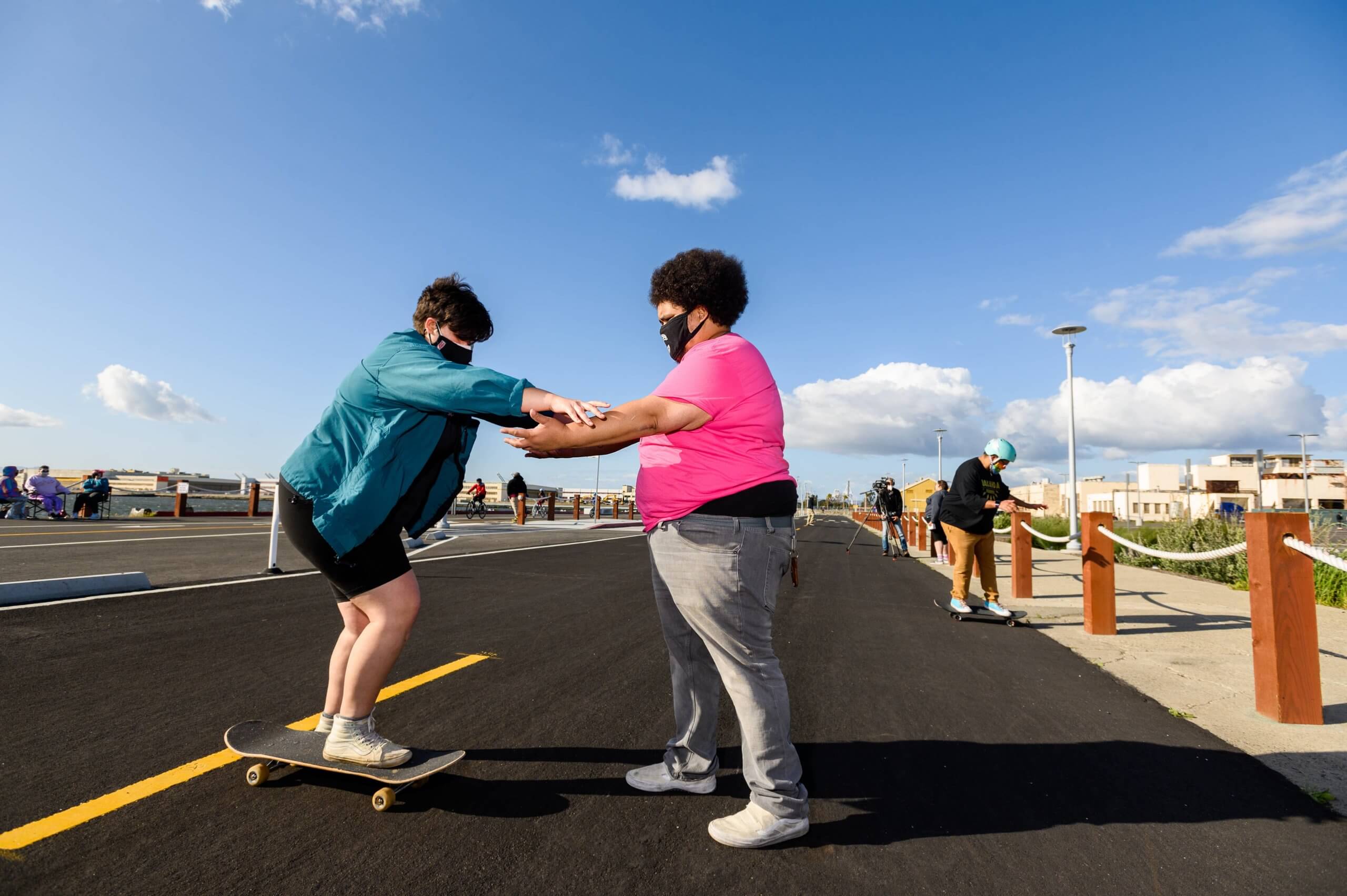
He continued, “I will never forget the first time I saw a fat person do a backflip or slam dunk a basketball or do ballet. I was like, wait, we can do that? I think that specific representation is huge because otherwise it boils down to people thinking that something is just not physically possible for them. And when it comes to this kind of physical activity, people don’t all do it because they’re trying to be in the X Games or be in Thrasher Mag. People don’t all dance because they’re trying to get into the Ballet Company. People do it for the joy of being in their bodies, especially people that have their bodies attacked all the time. Whether it’s for being fat, queer, trans, a person of color, or a woman. There’s a certain need to be able to reclaim [your body] and be in it for joy and pleasure, remembering all the things that it can do for you.”
However even with representation, it can be intimidating to break into the skate community as an individual. “Your only context is going to a skate park where you might be ostracized for not immediately having the skills for tricks,” said Duran. “There is this expectation that you have to be good enough to be at a skatepark. You have to know how to skate various terrains, show your stuff. That’s where [skateboarding] is less inclusive and a lot more about how cool are you? How athletic are you? How fit are you?”
The uneasy sense of otherness was solidified for Duran when he began to skate with another plus-size friend in the neighborhood. “The two of us started skating together, and he was like, ‘this is really good because I was skating with a skinny friend of mine, and it was just like everything he was doing felt so advanced, and I was comparing myself to him. Skating with you doesn’t feel like that,’” recalled Duran. “That was when I was like, okay, we need to create a spot for us to skate with one another. I need to create a club.”
Thus Chub Rollz was born.
Officially founded in November 2020, Duran gave himself the rainy season to plan the first meetup and get the group’s name out to the Bay Area skate scene. Chub Rollz immediately got attention. Discovered by the local Skate Like a Girl chapter, the group was picked to receive a donation of ten boards, ten sets of pads, and ten helmets for youth riders. “We were like, that’s amazing,” said Duran. “We should do a giveaway so we can connect to the community. So we hosted an event for local folks that had kids that were interested in skating to come out, and for the selected families to come get these boards.”
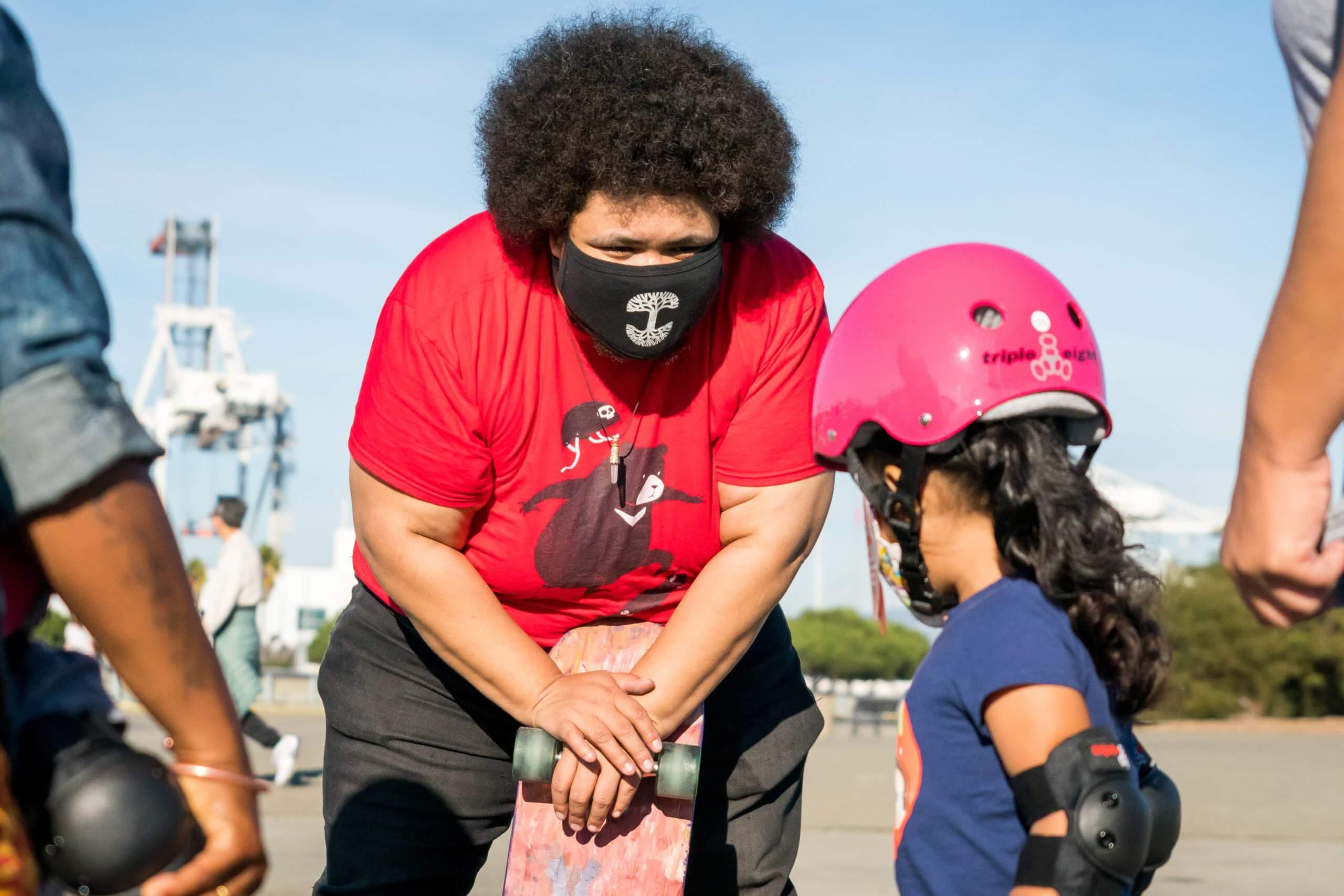
The giveaway was a success and the event was filled with happy kids. Along with the families that attended, ABC News was there to cover the get-together, spurring a wave of publicity. “That was in January, that makeshift [get-together] for the kids event. But we didn’t end up hosting our first Chub Rollz event until March because it was the rainy season,” explained Duran. “Then CNN came to our first event and we were like, are you kidding me? We had multiple news stations, different languages at our first event. We had no idea if people were even going to show. We didn’t have members, right? We didn’t have anything. It was just us hosting this. It was outrageous.”
Though there were some nerves, the first official Chub Rollz meetup was a fantastic success. “We had about 30 people come throughout the few hours that we were out there,” recalled Duran. “The last couple of hours were the best because there was no stress or cameras in our faces. We just got to be there, skate, and get to know some new folks.”
For some attending the meetup, it was their first time on a skateboard. Now Duran sees them skating all around the Bay Area and can’t help but smile.
In the years since Duran’s dissatisfactory search results in 2020, plus-size skaters have staked out a space in the online skate community. Athletes of various body types at differing skill levels now share their tricks online, and all are celebrated equally. “I’ve seen more [high level] skaters start to post and that feels amazing,” said Duran. “Hogey [aka Darian Webber], I’ve been following since before I started skating [again in 2020]. He was skating and he was skating good. He’s got these great insane clips of him skating all over the place. At skate parks, doing tricks. So when people start to [say], ‘okay, well, you can be a fat skater, but you probably can’t be any good at it.’ I’m like, no, I’m just not good at it. Check this dude out. He’s amazing and has been really kind to me over the years online. Whenever I wanna show people that we as fat people can really shred, I show him.”
He continued, “There’s a new guy that’s come out, Joey Walder. And he does tricks too. He’s more of a board breaker because he’s literally like, oh, can this board stand me doing this jump down the stairs?”
Online, Chub Rollz continues to serve as a supportive entry point for those in the plus-size community interested in skateboarding. “We get emails and comments all the time from folks asking about how to build boards. I definitely know that there’s more folks skating because of us, and that feels amazing,” smiled Duran.
In person, the group continues to host regular meetups and Duran has been pleased to see how many intersectional skaters come to their events. “I’m queer and trans and so a lot of members that come to Chub Rolls are also queer and trans,” explained Duran. “That surprised me a little bit, but also not at all. Once you know that you’re in a safe space, people are like, ‘oh, cool. Well, I’m just going to show up as all of me.’”
Unfortunately this year, due to a prolonged wet season in the Bay Area, at the time of the interview Chub Rollz hadn’t yet had the chance to host a 2023 meetup. While Duran was bummed to not be out skating with his friends, it has given him a chance to ideate on what next steps to take with the group. “I’ve been considering focusing on content again,” he explained. “The thing people ask the most about are board setups, how to shop for a skateboard, things like that. [We get questions] from all over the world. So I feel like I might have a greater impact if I [prioritize online resources as well] versus just solely [focusing on] the in-person group. I also want to do more political stuff to challenge some of the status quo. I’m pretty bummed right now that I can’t find a skate hoodie in my size. It’s a bummer because I have money, I wear hoodies, and I like to skate. So should I kick up some noise about it on behalf of the other fatties that want hoodies?”
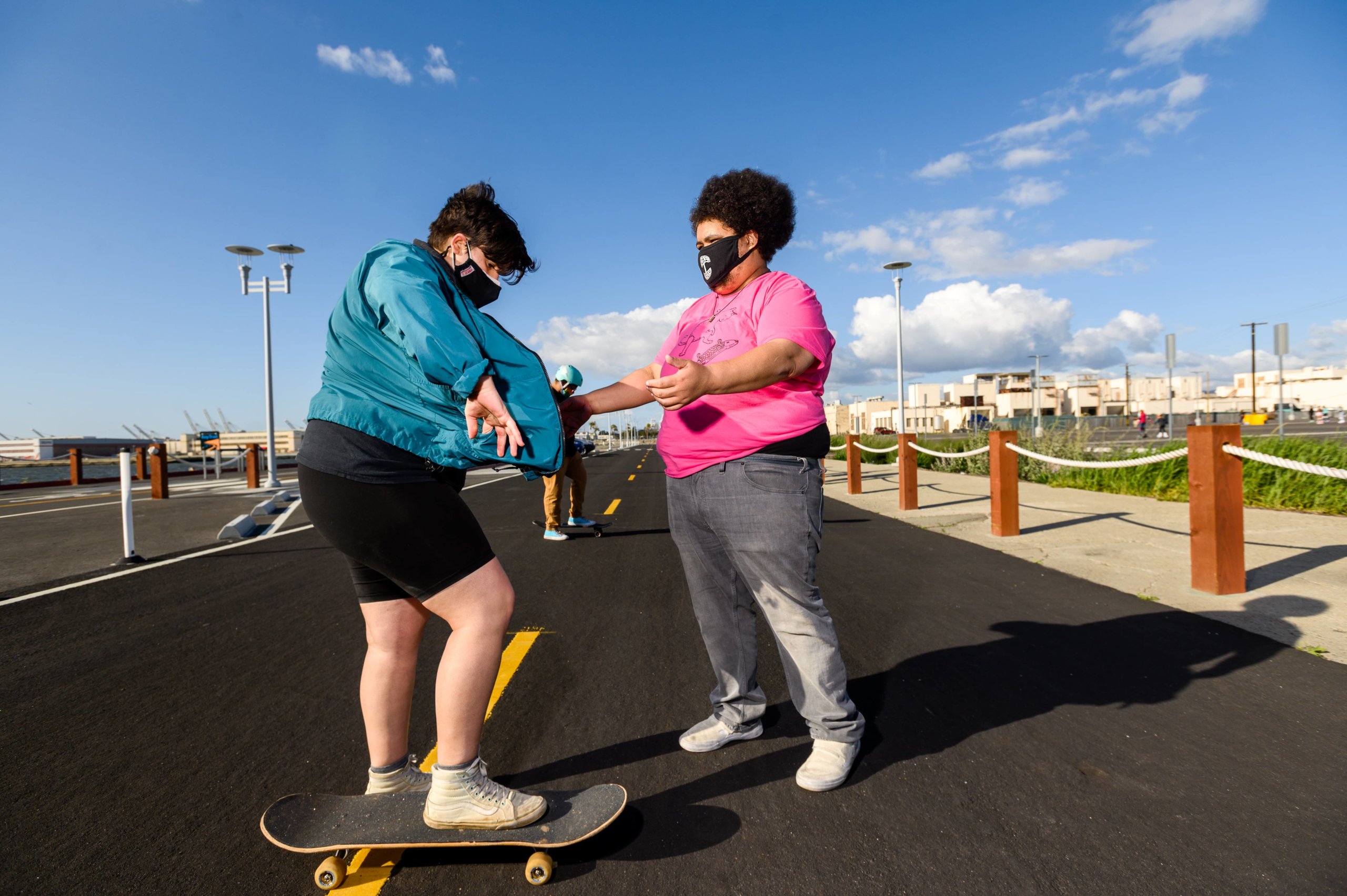
Reflecting back on the past few years of Chub Rollz, Duran knows the group wouldn’t have gotten to where it is today without the help of other local skate organizations. “The biggest supporters of Chub Rollz have been folks that are working to change the look of skateboarding,” said Duran. “Skate like a Girl is huge on creating more of a feminist skating scene where it’s not only for girls, but it’s the idea that no one should feel ashamed to skate like a girl. Right? I think that’s rad. Then Unity Skateboarding is a super queer and trans skateboarding brand, culture, crew, fashion, everything. They’re just down the street from me. Unity has been a huge support for Chub Rollz. They have provided us with boards, hosted events, and co-hosted events with us. They’ve been so great and so welcoming, always including me in opportunities. Those two groups helped me to see that skate culture is and can be inclusive.”
Though each crew may prioritize different identities, this collaboration illustrates the shared underlying purpose of these groups. To show the world that anyone can skateboard. “[We all help] out, whether it’s the new skater, the fat skater, the queer, the trans, or the person of color that’s not seeing themselves at the skatepark, all of it. We got you,” smiled Duran. “When that’s your motivation, you’re going to create something really beautiful, and it feels cool to be a part of that.”
